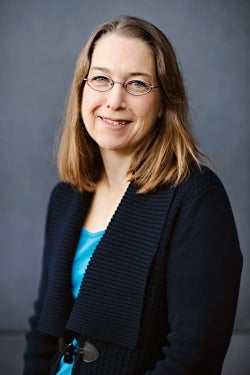
After completing a doctorate in fluid dynamics at the Cornell University School of Engineering, Campbell pivoted her attention to mathematical biology, a burgeoning field at the time, as a postdoctoral student in Montreal. As she examined models for physiological processes with time delays, which describe the time it takes for information to travel from part of a system to another, she developed an interest in biological systems that drives her research forward today.
For most of her 26 years as a faculty member in the Faculty of Mathematics, Campbell has focused her research on building and analyzing mathematical models within the neural system. “Using a blend of physics and mathematics to model time delays in the brain, we can begin to understand how these delays affect different behaviours,” she explained.
According to Campbell, rare moments of discovery in research make her efforts worthwhile. “It’s incredibly rewarding to analyze and predict behaviour, then watch these predictions actually play out in the real world,” she shared. Campbell’s research has practical implications for neurological conditions like childhood absence epilepsy, which she and her lab have studied to determine the impact of time delays on the disorder at different stages of development.
Outside of those lightbulb moments in research, Campbell finds the greatest fulfilment in the success of her students. “I watch the students who work in my lab go on to work in a diversity of positions within leading institutions in industry and academia, from neuroscience to cybersecurity,” she said. “It’s amazing to see what they go on to achieve.”
Reflecting on her journey from undergraduate studies in biology to her role in the Faculty of Mathematics today, Campbell expresses appreciation for an academic environment that embraces her interdisciplinary bent. “The Department of Applied Mathematics has given me the opportunity to combine my broad interest in math and science without having to choose between the two,” she reflected. “At Waterloo, I enjoy the freedom to pursue the areas that interest me most.”